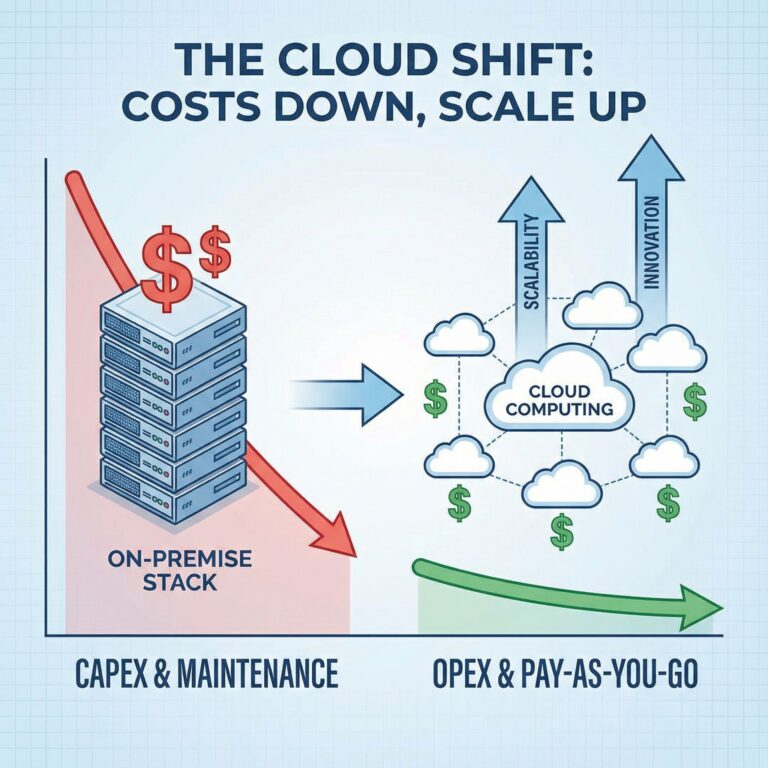
The adverse consequences of sports betting addiction: How to understand the crisis
Today’s Sporting Landscape
A slew of ills arise from the advent of 24/7 online betting and constant, large-scale digital marketing. Taking that angle a little further, every second is another roll of the dice when all sorts of offers for quick wagers show up on one’s cell phone.
Warning Signs and Potential Hazards
Sports betting addiction often sticks its head in mainstream consciousness through compulsive behavior. It is inevitably followed by problems that are major, far-reaching, difficult and costly.
Mental Health and Human Relationships
The effects of betting on sports are usually devastating. People are left almost unable to function–from psychological suffering to anxiety, depression, and breakdown of personal relationships. The syndrome throws up family members as more or less encroachers who keep their distance-people that don’t trust and aren’t friends any longer, or friends that have become mere informants thanks to the financial burden placed on them to ingest any information which might be used by the person so burdened for material gain.
In this destructive cycle, people often go into:
Emotionally “hungry” sporting environments
Deterioration of professional performance
Having to continually work under high temp levels with sweat pouring off them
Families and ties between generations fall apart
Financial Devastation and Recovery Hurdles
The larger picture of sports betting addiction is rooted in gambling problems. The results for individuals are catastrophic and often lead to:
Ways to Break the Vicious Cycle
When we understand sports betting addiction fully, we begin to be able to intervene–and recover. Essential aids in U.S. efforts twelve years ago were recovery groups, an array of professional consultants, and various spokespeople skilled in addiction counseling for help with the kind of destruction involved in recurrent compulsory wagers.
Understanding Sports Betting Addiction
Understanding Sports Betting Addiction in Full: A Comprehensive Guide
The Growing Influence of Sports Betting Addiction
Sports betting addiction has become a serious form of gambling disorder, with millions of people worldwide affected by this complex psychological affliction.
It goes far beyond financial losses. The way a person thinks, their patterns of behavior–every aspect of daily life after a while is different from what it used to be in part or all because gambling has now cumulatively infested their very psyche and molded such things into itself too.
Notes on the Nature and Preparing of Stars Betting Addiction
Its Formative Behavior
The constant urge to bet on games
Wager escalation by slip
Secret moves made against relations and friends
Withdrawal symptoms of betting addiction
Mastermind Behind Sports Betting Addiction
Sports betting addiction and the psychological fall-out that comes with it are quite extraordinary. The belief in “beating the system,” after all, validates a reliance on their own perceived expertise and analytical capabilities to bring the___back into line.
Sports betters do not have the same psychological trespass that other problem gamblers may have.
Modern Hurdles in Sports Betting
Digital Accessibility
The recent upswing in mobile sports-related gambling applications and bets that can be placed anywhere at any time has really been a double-edged sword in terms of addiction risk.
This unprecedented accessibility means more and longer intervals in which to engage in problematic betting behaviors.
Neurological and Social Factors
Dopamine reward from victory
Participation in humanities viewing culture or environment.
Ability element perceived vis-a-vis pure luck factor
More Locking Experience in Bet Options Real Time
Compounding the Risk
The widespread image of sports betting as a mental match, as distinct from pure chance and short-sighted sports casino cookies at home bring the public its own particular poison–a false consciousness that leads to errors in predictability based primarily on good sport knowledge or statistical analysis.
Advanced digital technology, acceptance of betting as a social activity, and the perception of skill makes gambling on sports in today’s culture especially hard to place into any known category of disorder.
Warning Signs and Risk Factors
Warning Signs and Risk Factors of Sports Betting Addiction
Key Warning Signs to Look For
Certain distinct warning signs betray a serious betting problem.
Mattress stuffing, striving to make up comfortable for negotiating
Stride one foot forward as the water rises scalped clothes increase and betting wittiness flourishes
Sep complete restlessness or nervousness when unable to bet
Like anxiety and depression, if you already have mental health conditions, your chances of getting it are higher. If such conditions coexist with drug abuse, then the danger is further compounded.
The widespread distribution of bookmakers’ applications and aggressive advertising also represent new triggers for the environment in which one bets.
Rabid Behavior Signals
Withdrawal from friends, neglect of work and business meetings are clear indications that you’re getting into bad betting habits.
When gamblers have to borrow money just to bet, that’s a definite sign of trouble.
Spending too much time on esoteric sports questions and odds, at the expense of life and work, shows that serious gambling has taken hold.
These behavioral changes require the intervention and support of professionals.
More Warning Signs
Inordinate attention to sports gambling
Secretiveness over the amount of betting one does
Difficulties caused to close relationships on account of gambling habits
Efforts to control or stop gambling have met with failure
Reaction to the results of gambling in a deeply emotional and abrupt manner
The Mental Health Impacts Of Sports Wagering Addiction
Psychological Health
Sports gambling addiction, through many types Echo-Root Bets bypasses, inflicts psychological damage which can be said to be severe. The continued cycle of win and loss begets an extreme emotional rollercoaster: it brings widespread clinical anxiety, depression and even mood disorders.
This pattern fundamentally changes brain chemicals when the reward circuit scripted with dopamine becomes habit, it eventually becomes harder and harder to feel good knowledge as its reward. What once would have been fun is no longer enjoyable.
Emotional and Social Consequences
The end result of betting addiction is deep shame, guilt and self-hatred, especially when serious gambling losses have been suffered. These highly negative emotions invariably deteriorate into clinical depression and suicidal thoughts.
The clandestine nature of gambling dependence often leads to social isolation and damaged relationships, all cramping an individual’s overall mental health.
Financial Stress and Cognitive Effects
Financial ruin caused by betting losses increases these effects still further. Anxiety, together with nagging habits to panic or worry, can take over someone’s life. Instilled in gamblers all too often are:
Panic attacks
Insomnia
Deterioration of competitive memories
Cognitive distortions
The rise of faulty thinking patterns like “chasing the market” and the belief in “due” wins will alter a person’s decision-making abilities permanently, ruin their ability to assess risk correctly, and erode or even totally abolish mental function.
Breaking the Cycle
Breaking the Cycle: Overcoming Sports Betting Addiction
Understanding the Path of Recovery
Complete recovery from sports betting addiction needs a detailed and structured program of counselling plus self-discipline and support.
Critical first step is recognizing your addiction and seeking help from a certified gambling addiction counselor who will work out an individualized treatment plan based on these compulsive behaviors and the many deep-seated psychological factors behind them.

Practical Protection Measures
Key safeguards during recovery:
Self-exclusion smokes bet platforms
Installation of blocking software
Financial management of transfer family members dime to
Establish substitute pursuits
Community Building
Links between continued recovery and ongoing community support are essential.
Meetings provided by Gamblers Anonymous bring useful social networks to people living with like difficulties. These self-help groups can impart coping skills and provide the critical accountability game plan essential if recovery is to last.
Clinical Recovery
Recovery treatment will have to combine the following elements:
Specialized therapy to counter addiction
Techniques for coping with stress
Mental health assessment for possible Tinder & Tonic Casino coexisting conditions
Behavioral therapy sessions to combat addiction
Relapse prevention strategies
Challenges After Recovery
Although recovery indeed requires undergoing many tribulations, they ought to be looked upon as opportunities for learning rather than failures of effort.
Each tribulation will provide strength to further shore up recovery, offering more experience and chances to discover new coping strategies. Whether one can maintain success long term or not depends on maintaining a consistent support network and using established recovery tools.
Recovery and Resources
The Complete Recovery Guide to Sports Betting: Including Support Resources
Professional resources
To break free of gambling addiction, first make every effort to obtain the right kind of supports area.
With professional counseling services, especially Cognitive Behavioral Therapy (CBT), you can expect to see effective treatment methods for getting over sports betting addiction.
These therapeutic interventions help to uncover all those hidden triggers, and will end by teaching powerfully effective coping methods to last a lifetime.
Support Groups and Community Services
Gamblers Anonymous (GA) is a beacon for help, offering free support through their proven 12-step recovery program.
GA holds face to face and online meetings, making sure you are with others who understand exactly what’s going on in your world. This is a peer support network that means everything to someone walking the road of recovery.
Crisis Intervention & Helplines
The National Problem Gambling Helpline, staffed by skilled professionals available 24/7, offers immediate crisis support and referrals to treatment. 토토사이트 추천
When available, state-specific problem gambling councils can provide such additional resources as: free or subsidized treatment programs, local connections to support groups, educational materials for public consumption, services which families need when a loved one is caught in lawful dispute with creditors.
Financial Recovery Resources Authorized by the USA Congress to run this hotline, we refer calls, which may be local or less so (eight 0 hours a day, seven days per week).
With special emphasis on gambling-related debt,
credit counseling services can help those in debt with a gambling habit through:
Structured repayment plans
Systems for managing disconnected budgets
Education on personal finances
Options for debt consolidation
Self-Exclusion Programs
Voluntary self-exclusion programs are a lifeline for people in recovery, providing a means to:
Block access to betting platforms
Limit entry to casinos
Prevent online gaming activities
Erect barriers against temptation that still fall short of relapse
It is these programs, sponsored by gambling operators and gaming authorities, which put an essential shield on every recovery process.






